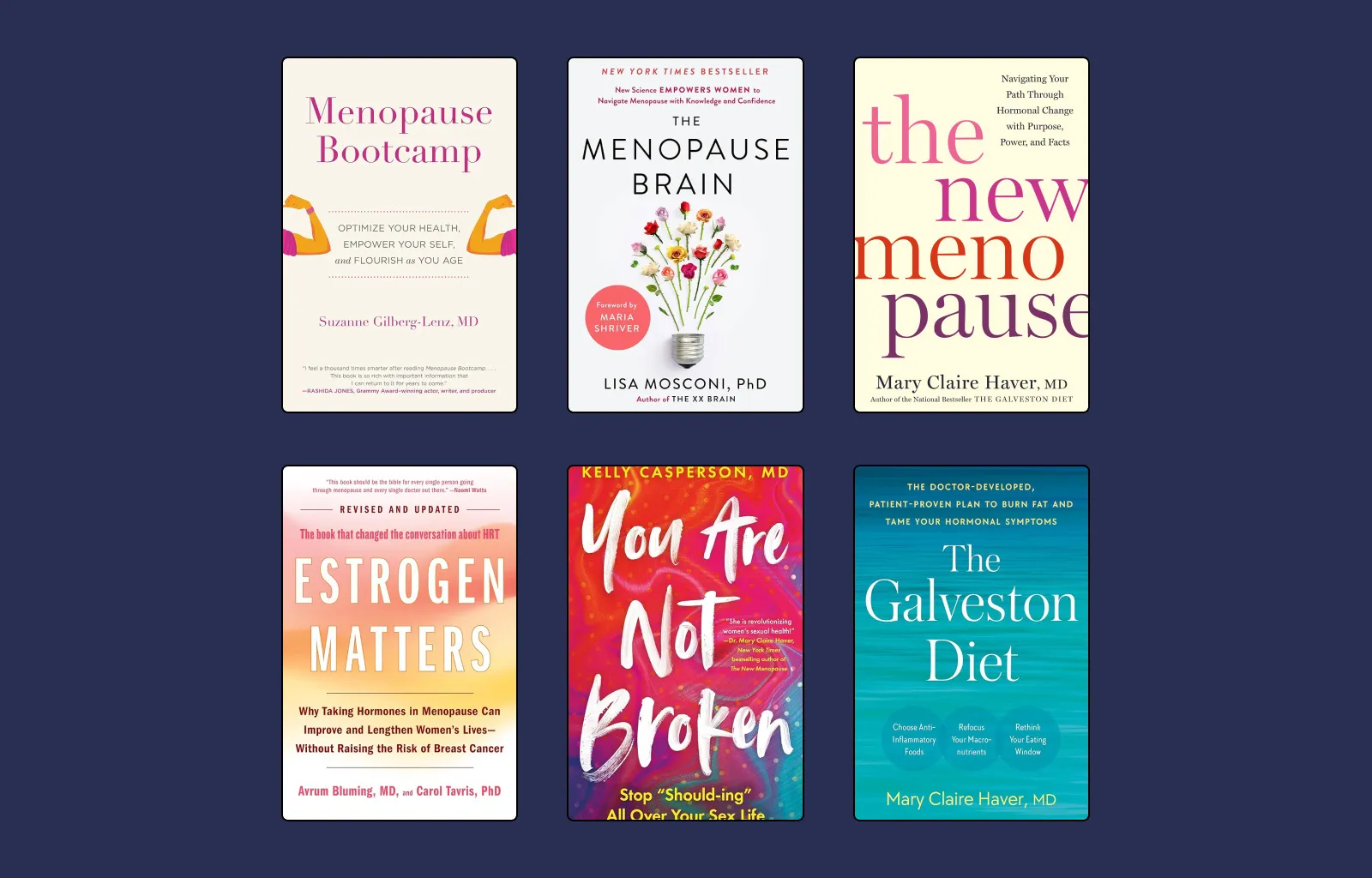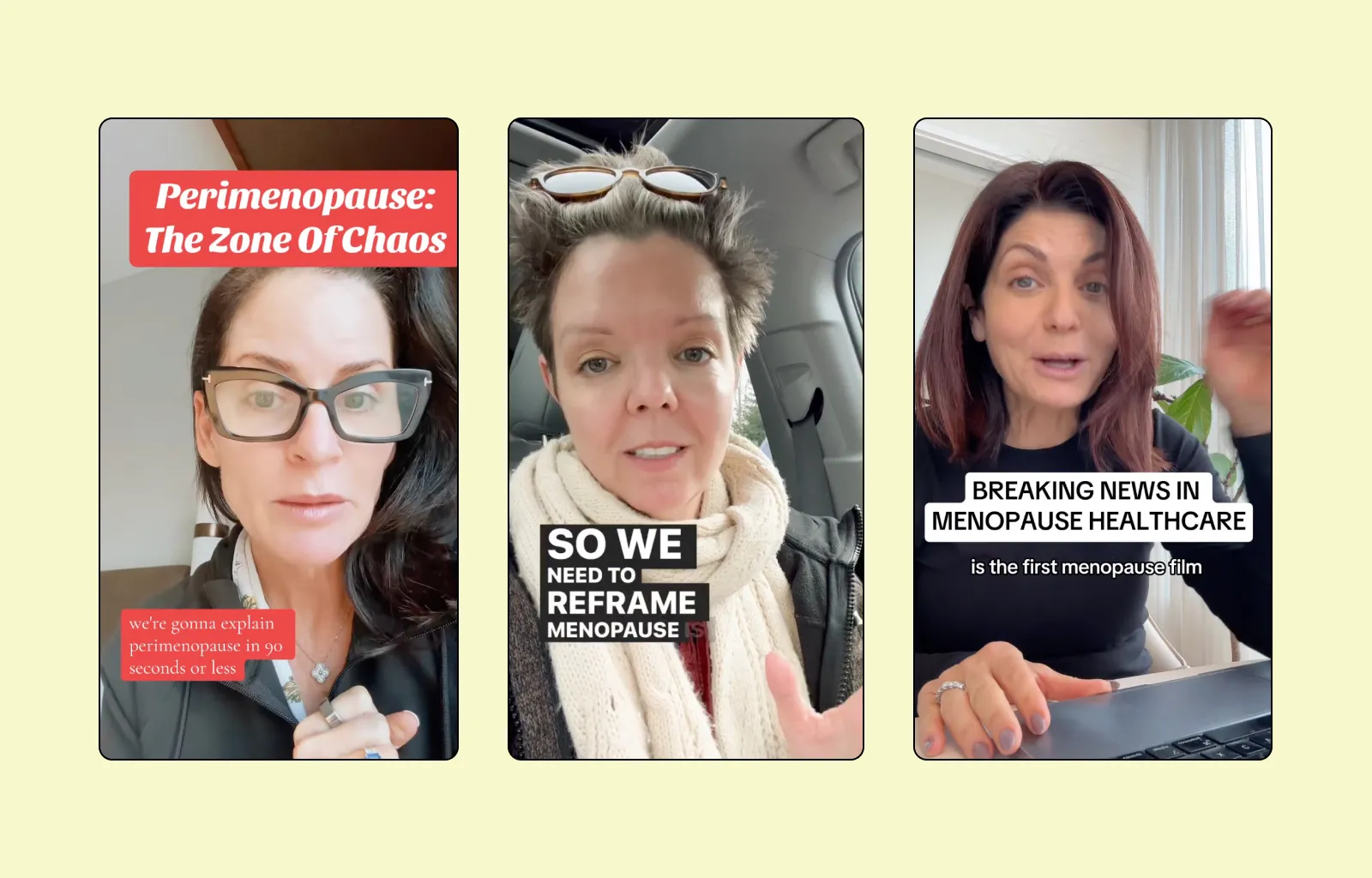Great Sex in Your 50s

Here’s a universal truth: Our bodies change. But here’s another universal truth: You can still have great sex in your 50s.
For women going through menopause, change is inevitable. And though some may experience changes like low sex drive, night sweats, anxiety and depression, or vaginal dryness—these disruptions aren’t insurmountable.
Whether your symptoms are mild, moderate, or severe, going through menopause doesn’t mean you have to give up on intimacy and physical pleasure.
Here are some of the most common symptoms of menopause that affect our sex lives during menopause, and how to address them:
Low Sex Drive
Declining hormonal levels during and after menopause play a big role in why many women experience decreased sexual desire during this transition. In women, adequate levels of both estrogen and testosterone are important when it comes to producing and maintaining libido.
But during menopause, estrogen levels drop sharply, while testosterone levels decline more slowly (but continue to drop with age). And women whose ovaries are removed during menopause will likely experience an even more drastic decline in sex drive.
So how do you get your sex drive back? The good news is that effective treatment options do exist:
- Studies have shown that systemic hormone replacement therapy can be effective at improving libido and sexual responsiveness during menopause.
- Good nutrition may help, too. Foods that include phytoestrogens (estrogen-mimicking compounds found in plants)—like those found in soy, yams, flax, and lentils—many help to replace the lower and fluctuating levels of estrogen being made by your body during this period.
- Ask your doctor to review all of your medications and discontinue any that are not essential and may be harming your libido, especially some serotonin reuptake inhibitors (SSRIs) that have been found to reduce sexual interest in women. Some SSRIs, like citalopram (Celexa) have been shown to have a lower negative impact on desire, and may be a good replacement SSRI option.
Night Sweats
It’s understandable how waking up in the middle of the night drenched in sweat could put a damper on your sex life.
Night sweats (also called “vasomotor symptoms”) are sudden waves of extreme heat in your body that cause you to sweat profusely. Essentially, they are hot flashes that happen at night, which can cause severe discomfort, rapid heart rate, and feelings of anxiety or dread.
Like low sex drive, night sweats are caused by the fluctuation and decline of your hormones during menopause, but they can also be exacerbated by certain lifestyle factors, including stress, drinking alcohol, exercising at night, eating spicy foods, smoking, and being overweight.
Here are some effective treatments to reduce night sweats and their impact on your sex life:
- Estradiol is the most effective, safe, and FDA-approved treatment available for night sweats. It’s scientifically proven to eliminate night sweats in up to 75% of women and to reduce the frequency and severity in the remainder. It works by replenishing the exact form of estrogen that your ovaries are no longer producing.
- Gabapentin, a prescription seizure medication, is also used off-label to control body temperature and night sweats. As an added bonus, it has also been shown to have a calming effect and support a more relaxing night’s sleep.
- One study showed that regular strength training (performed about three times a week) can significantly reduce the frequency of hot flashes and night sweats, especially if regular strength training is not already a part of your exercise regime. Just be sure not to exercise at night, which can have a negative impact on night sweats. Regular exercise in general can also help the body’s thermoregulation and result in more efficient heat release.
Anxiety and Depression
It’s no secret that menopause can cause mood changes. In fact, the CDC reports that anxiety and depression levels peak in American women ages 40-59.
Anxiety and depression can also decrease your libido and feelings of arousal. To make matters more complicated, SSRIs like fluoxetine (Prozac) or paroxetine (Paxil) that can be effective for depression can also reduce your sexual responsiveness and libido. Switching to bupropion (Wellbutrin) helps some women, as it has fewer sexual side effects. Hormone therapy (HT) has also been shown to help with mood issues in women going through perimenopause and menopause.
If you’re feeling an increase of anxiety and depression, talk to your doctor about which medical treatments may be right for you, if any. However, there are some non-medical treatments that may help, too:
- Mindfulness techniques, including deep breathing exercises, may help feelings of anxiety by slowing down heart rate. When practiced regularly, these exercises can help retrain your body’s response to common stress and anxiety triggers.
- Results are mixed, but some studies show that acupuncture performed in perimenopause, during menopause, and post menopause can reduce feelings of depression and other common symptoms, including hot flashes.
- Though it may take more time to experience the benefits of psychotherapy than with medication, reports show that two specific types of therapy—interpersonal and cognitive-behavioral therapy—can be an effective standalone or supplemental treatment options for women experiencing anxiety and depression during menopause. Reports also show that the benefits can be long-lasting.
Vaginal Dryness
Vaginal dryness, also called atrophic vaginitis or GSM, can start as early as your 40s, and make your vaginal walls become drier, itchy, more irritated, and less lubricated and pliable during sex.
Caused by the decline of estrogen in your body, vaginal dryness has been shown to affect 34% of women aged 57-69, and it tends to get progressively worse with age.
Though vaginal dryness can make sex painful for some women, there are some things that can help:
- A comprehensive literature review found that vaginal estrogen therapy was the fastest and most effective treatment for vaginal dryness, with 80-90% women self-reporting improvement and relief from their symptoms.
- Embrace self-pleasure. Masturbation has been shown to keep vaginal tissues more supple and moist. Experimenting with toys, foreplay, and clitoral stimulation—rather than solely vaginal stimulation—can be especially helpful when rediscovering your new sources of pleasure.
- If penetrative sex or masturbation is painful, lubricants and moisturizers can help. Keep in mind that there is an important distinction between the two: lubricants provide short-term relief while moisturizes mimic natural vaginal secretions to help your vaginal tissues retain more moisture. When shopping for lubricants and moisturizers, be sure to select a product free of parabens and microbicides.
Sexual arousal and satisfaction are unique to every woman: Changes in your sex life can be triggered by biological and psychological factors that are specific to you.
You know your body and sexuality best, and Evernow knows menopause treatments. If you choose to try out hormone therapies, we will guide you hand-in-hand through the process to ensure that you are a candidate, and that you have the treatment best suited to help you find relief from symptoms that may be harming your sexual desire.
Reviewed by Cynthia Krause, MD



